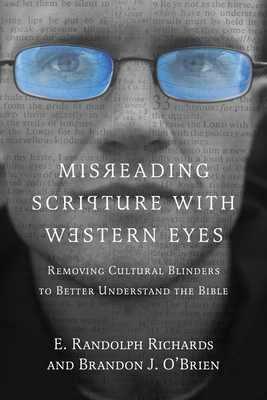Misreading Scripture with Western Eyes: Removing Cultural Blinders to Better Understand the Bible

Misreading Scripture with Western Eyes: Removing Cultural Blinders to Better Understand the Bible
- Bookwi.se's Favorite Books of the Year, Non-Fiction
- When Western readers hear Paul exhorting women to "dress modestly," we automatically think in terms of sexual modesty. But most women in that culture would never wear racy clothing. The context suggests that Paul is likely more concerned about economic modesty--that Christian women not flaunt their wealth through expensive clothes, braided hair and gold jewelry.
- Some readers might assume that Moses married "below himself" because his wife was a dark-skinned Cushite. Actually, Hebrews were the slave race, not the Cushites, who were highly respected. Aaron and Miriam probably thought Moses was being presumptuous by marrying "above himself."
- Western individualism leads us to assume that Mary and Joseph traveled alone to Bethlehem. What went without saying was that they were likely accompanied by a large entourage of extended family.
PRP: 154.94 Lei
Acesta este Prețul Recomandat de Producător. Prețul de vânzare al produsului este afișat mai jos.
139.45Lei
139.45Lei
154.94 LeiLivrare in 2-4 saptamani
Descrierea produsului
- Bookwi.se's Favorite Books of the Year, Non-Fiction
- When Western readers hear Paul exhorting women to "dress modestly," we automatically think in terms of sexual modesty. But most women in that culture would never wear racy clothing. The context suggests that Paul is likely more concerned about economic modesty--that Christian women not flaunt their wealth through expensive clothes, braided hair and gold jewelry.
- Some readers might assume that Moses married "below himself" because his wife was a dark-skinned Cushite. Actually, Hebrews were the slave race, not the Cushites, who were highly respected. Aaron and Miriam probably thought Moses was being presumptuous by marrying "above himself."
- Western individualism leads us to assume that Mary and Joseph traveled alone to Bethlehem. What went without saying was that they were likely accompanied by a large entourage of extended family.
Detaliile produsului










